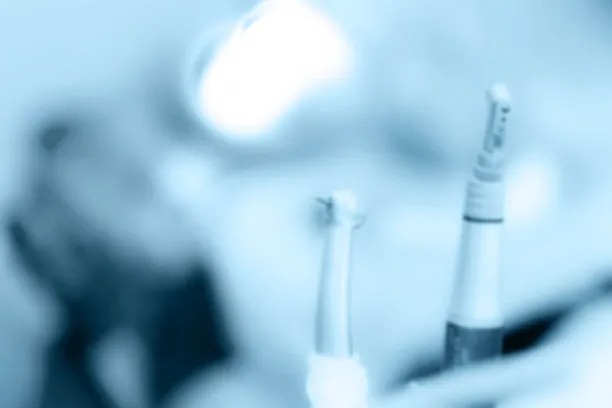Summary: Dental fillings are essential for restoring teeth affected by decay or damage, and understanding the necessary precautions before and after treatment is crucial for maintaining optimal oral health. This article outlines essential considerations, including pre-treatment evaluations, aftercare instructions, dietary choices, and follow-up care. By adhering to these precautions, patients can ensure that their dental fillings are successful and long-lasting, while also promoting overall oral hygiene. With the right preparation and post-treatment strategies, patients can enjoy their new fillings and maintain a healthy smile for years to come.
1. Pre-Treatment Evaluations Are Key

Before undergoing dental filling procedures, its vital to have a thorough evaluation by your dentist. This step ensures that the diagnosis is accurate and that all necessary procedures are outlined. A qualified dentist will assess the extent of tooth decay or damage, which influences the type of filling material to use. They may also take X-rays to visualize the condition of your teeth and ensure that no additional issues are present.
Additionally, discussing your medical history with your dentist is essential. Inform your dental care provider about any allergies, current medications, or medical conditions. These factors can influence how your body reacts to the anesthesia used during the procedure or the materials chosen for your filling. Full transparency allows the dentist to customize the treatment for your specific needs, ensuring a smooth experience.
Last but not least, understanding what to expect during the procedure can reduce anxiety. Many dental offices provide informational resources or consultations to prepare patients for the process. Being informed can lead to more comfort and trust in your dental care, setting a positive tone for the filling experience.
2. Aftercare Instructions for a Smooth Recovery
After receiving a dental filling, adhering to your dentists aftercare instructions is crucial for optimal healing. Your dentist will typically recommend avoiding certain activities immediately after your filling, especially if anesthesia was used. Its essential to refrain from chewing on the treated side until sensation returns, preventing accidental injury to your mouth.
Swelling or sensitivity is common after a filling procedure. To manage discomfort, over-the-counter pain relief medication may be suggested. Keep in mind that if you experience ongoing pain or swelling beyond the initial recovery period, you should contact your dentist. Such symptoms could indicate complications requiring further evaluation.
Maintaining good oral hygiene is essential post-treatment. Be gentle while brushing and flossing around the filled area to avoid dislodging the filling while still ensuring adequate cleaning to prevent infection. A routine dental cleaning and check-up should also be scheduled to monitor your oral health regularly.
3. Dietary Choices That Make a Difference
Your diet plays a significant role in the longevity and success of your dental fillings. Immediately after receiving your treatment, its wise to avoid sticky, hard, or chewy foods that can put undue pressure on your newly filled tooth. Allowing some time for your enamel to settle into the filling helps ensure that it remains intact.
Moreover, you should refrain from consuming extreme temperature foods and beverages, as this can cause sensitivity issues in a freshly filled tooth. Consider eating soft foods, such as yogurt or mashed potatoes, until you feel comfortable returning to your regular diet. This approach minimizes discomfort and helps ensure the filling settles properly.
Long-term, maintaining a balanced diet that promotes oral health is vital. Foods rich in calcium and vitamin D can help support your teeth and gums, while sugary or acidic foods should be limited as they can contribute to tooth decay and wear. Staying hydrated while promoting healthy eating habits will play a crucial role in the durability of your dental fillings.
4. Importance of Follow-Up Care and Monitoring
Follow-up care is a key aspect of ensuring the durability of your dental filling. Scheduling a follow-up appointment with your dentist within a few weeks after the procedure allows them to inspect the filling for proper placement and function. This visit is crucial, particularly if you experience discomfort or suspect any issues with the filling.
Regular dental check-ups every six months are equally important. These visits allow for continuous monitoring of your oral health and the condition of your fillings. Your dentist can catch any potential problems early and suggest solutions to prevent further complications.
Moreover, remaining vigilant about changes in your oral health can also help identify issues quickly. Pay attention to any unusual sensitivity or discomfort in the filled tooth and report these symptoms to your dentist promptly. Early intervention enhances the chances of maintaining the integrity of the filled tooth and your overall oral health.
Summary:
In summary, understanding essential precautions before and after your dental filling treatment can significantly impact your overall oral health. From pre-treatment evaluations to diligent aftercare and dietary considerations, each aspect plays a pivotal role in the success and longevity of your dental fillings. Always prioritize follow-up care to monitor the condition of your fillings, ensuring they remain in good shape for years.
This article is compiled by Vickong Dental and the content is for reference only.
Vickong Dental
Vickong Dental is a large medical group established in Hong Kong in 2008 by professors from well-known medical universities in Guangdong and Hong Kong, as well as medical doctors from key national '985' universities (including Master's supervisors and senior professors). The chain of branches brings together expert dentists with PhDs and Master's degrees from Hong Kong and Mainland China, committed to providing high-quality dental treatment.
"Vickong Dental Practices the University Motto of 'Healing and Serving Society,' with a Stable Operation for Sixteen Years. It Has Been honored with Hong Kong Enterprise Leaders's Choice,' and is a Global Trusted Implant Center for the Nobel Implant System. Recommended by Hong Kong Metro Broadcast and Guangdong Television, it Serves Customers from Over Thirty Countries and Regions, Gaining the Trust and Favor of Citizens from the Guangdong-Hong Kong-Macau Greater Bay Area and Surrounding Cities.

Thousands of customers' unanimous praise
The most recognized and highly recommended dental service by customers in the Guangdong-Hong Kong-Macau Greater Bay Area
We Ensure You Receive Detailed Care and Attention Here
Hong Kong standards, Shenzhen prices, Your Trusted English-speaking dentists

Vickong Dental Medical-Grade Instrument Disinfection Process
Vickong Dental Medical-Grade Instrument Disinfection Process

Vickong Dental Chain: A Warm and Comfortable Environment for Treatment






Appointment Hours

Q&A
Why choose Vickong Dental?
Vickong Dental practices the university motto 「Medicine to Benefit Society」, with each branch bringing together highly qualified dentists with doctoral and master’s degrees from Hong Kong and the Mainland, and has maintained seventeen years of steady operation。Recipient of 「2024 Hong Kong Enterprise Leaders Brand」, 「2025 Hong Kong Enterprise Leaders Brand」, a Nobel Biocare Global Trusted Implant Center, and a brand recommended by Metro Radio Hong Kong and Guangdong TV。
To date, we have served customers from more than thirty countries and regions,earning exceptionally high word-of-mouth recognition and trusted recommendations from residents across the Guangdong-Hong Kong-Macao Greater Bay Area and surrounding cities
We have eight major branches in Zhuhai、Shenzhen,and a consultation and service assurance center in Hong Kong,so you can book a free consultation at any time for any questions,which is very reassuring.
If I do not accept the quotation after the CT scan, will I be charged??
No! As long as the actual treatment has not started, you will not be charged any fees.
Will there be any additional charges during the treatment process?
No, there won’t be any additional charges. Before treatment begins, we will clearly explain the treatment plan and its corresponding fees. Only after the patient agrees and signs the consent form will we proceed with the dental service.
Can I pay in Hong Kong dollars?
Yes. Vickong Dental accepts payment in Hong Kong dollars. The amount will be converted based on the exchange rate of the day, and the applicable rate will be clearly communicated to you in advance.
Can I reschedule my appointment at any time?
Yes. Please contact us via **WeChat** or **WhatsApp** as early as possible, providing your original appointment time and details, along with your preferred new date and time slot for rescheduling.













